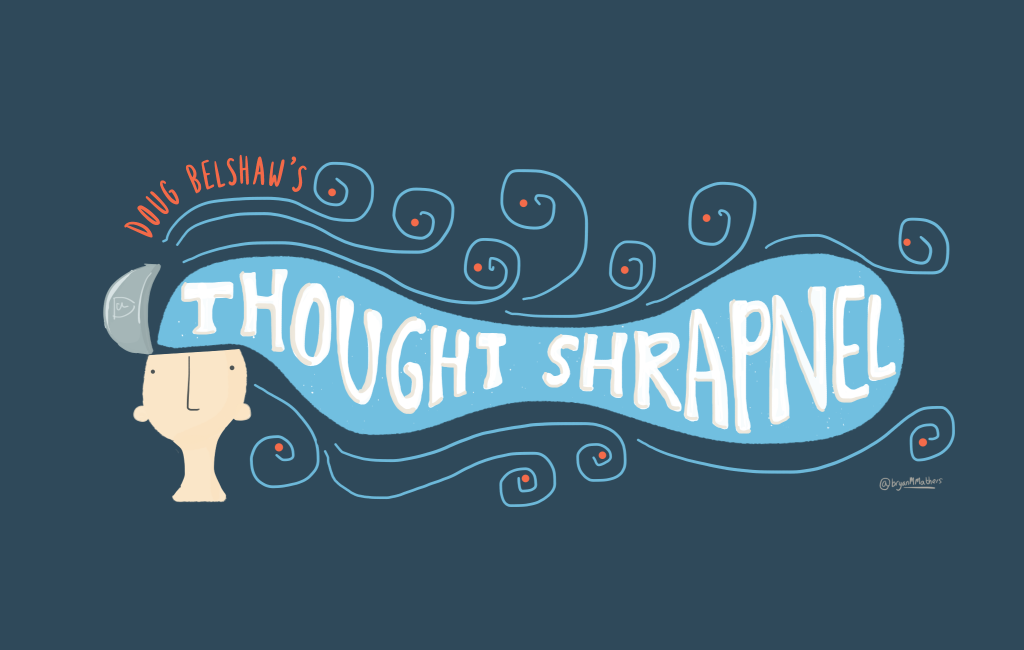Last week after another extended FIFA15 session I tweeted:
This led to the anonymous blogger behind Exit Teaching getting in touch via Twitter for the backstory to me leaving the classroom. I’m happy to share it as it’s something that a lot of people in similar situations struggle with. I hope it helps someone!
1. Why did you become a teacher?
Teaching was actually something I’d actively tried to avoid! My father had been Deputy Head of my high school and I’d seen how busy he’d been. I was in my third year of a Philosophy degree when I realised that I was about to need a job. My dad advised me to do my PGCE as ‘something I could fall back on’. After completing a self-funded MA in Modern History, that’s exactly what I did and became a History teacher. I loved it! I’d often say that if there was a roof over my head and food on the table I’d have taught for free!
2. What was your previous role? What are you doing now?
I taught History and a bit of ICT for six years in total. My last job in teaching was as Director of E-Learning of a large academy. I was there for a year and left in 2010. In April 2015 I made the jump to full-time consultancy after some time with Jisc in Higher Education and the Mozilla Foundation, where I was on their education team.
3. Why did you decide to leave teaching?
I skipped middle management and went straight into senior management. I guess I blagged the interview. The position was in an academy that took over nine schools, including three I used to attend – and the one in which my father was Deputy Head. Some of my old teachers were in senior management with me, and some were still full-time in the classroom. Added to that, I was writing my doctoral thesis at the time and had a two year-old son.
Looking back, there were three main reasons I decided to leave teaching. The proximate cause was that I was asked to spend most of my time around behaviour management-related issues. This frustrated me as I felt I was doing too much of it. Another reason was that, although as a cocky twenty-something I felt that I was ready for anything, to be perfectly honest I could have done with some middle-management experience before taking the role. I was thrust into a position where I was line managing two failing departments and one where the Head of Department had just suffered a bereavement. I was a bit out of my depth and wasn’t supported.
The third reason is that I’m an ‘ambivert’ and somewhat of a perfectionist. While I can appear extroverted in social situations, I need time to recharge – but my teaching style didn’t give me the opportunity to do that. It felt like constantly being on stage. I was burning myself out term after term.
3. How did you leave? What were the challenges?
How it ended was a bit of an anticlimax. I won’t go into the ins and outs but I effectively looked around for anything that would get me out of the situation. I realised that I had to choose between a) staying and trying to make a difference (against the odds) in the area in which I grew up, or b) being there for my family and finishing my thesis. I chose the latter and started a job with Jisc infoNet, based at Northumbria University about a year after I’d started at the academy.
The Researcher/Analyst job I moved into was primarily office-based and I took a £10k pay cut, but there was a good deal of national travel. That was great for networking. Originally, I thought it would be a very temporary measure before returning to the classroom in the next academic year – but that never happened. I finished my thesis, made some good friends and contacts in Higher Education, and realised there was life beyond teaching.
4. How do you feel about work, career and life in general now?
I’m still very much in touch with the teaching profession. Almost everyone in my family is, or has been, a teacher. My wife is a Primary School teacher, some of my friends are teachers, and I still have a large network of people I follow via social media. In many ways, the work I do supports teachers of all stripes. At Jisc it was providing resources and guidance. At Mozilla it was inspiring and bringing people together. Now, in my new consultancy role, it’s all about problem-solving and providing solutions.
The work that I did in teaching in my twenties was unsustainable. I wouldn’t be able to do it now, in my mid-thirties, never mind in my forties or fifties. It may have been the way I approached the profession, but it’s no wonder so many people get burned out. It’s not particularly their fault – it’s the situation in which we find ourselves.
You don’t have to work all the hours and have no social life to make a difference in the world. In fact, that’s probably a recipe for being out of touch with society and making yourself into a basket case. I’m much healthier now – I’ve started drinking chamomile tea, going to the gym/swimming every day, and even trying yoga and pilates! I’m calmer, happier in my own skin, and of more use to others.
5. What advice do you have for those thinking about leaving teaching?
I’m asked about this all of the time. In fact, one of my most popular blog posts of all time is one that explores the reasons teachers leave the profession. One of the problems is that moving into a different role outside of the classroom is often seen as a ‘failure’. Another is that, because it’s often a ‘vocation’ that people often go into an early age, those looking to move on aren’t always aware of their transferable skills.
I’ve found that my ability to stand up and engage only moderately-interested teenagers is a particularly useful skill. As is my ability to get things done. Invention is the mother of necessity, so the workflows you develop as a teacher stand you in good stead for getting stuff done outside of the classroom. Planning, preparation, knowing how to talk to external stakeholders (i.e. parents) – all of these are in-demand qualities.
Everyone’s situation is different and so it’s difficult to give generic advice. What I would say is that if you feel that your job – any job – is getting in the way of things you think are important, then you should consider doing something else. If your health (both physical/mental) or your relationships are suffering, stand back and re-evaluate. Teachers tend to be extremely loathe to take time off because of the ‘burden’ they’re placing on others. However, that’s the school’s problem. If you need to take a couple of days to get your head together, then do it. Better that then long-term absence and a cascading series of problems.
There’s so much opportunity out there. Teaching is a valuable and rewarding occupation. But it’s also stressful and relatively low-paid (if you stay in the classroom). Take your time to discuss it with people you know and respect. If there’s a consensus, start looking for something else!
Image CC BY-NC Thomas Hawk



